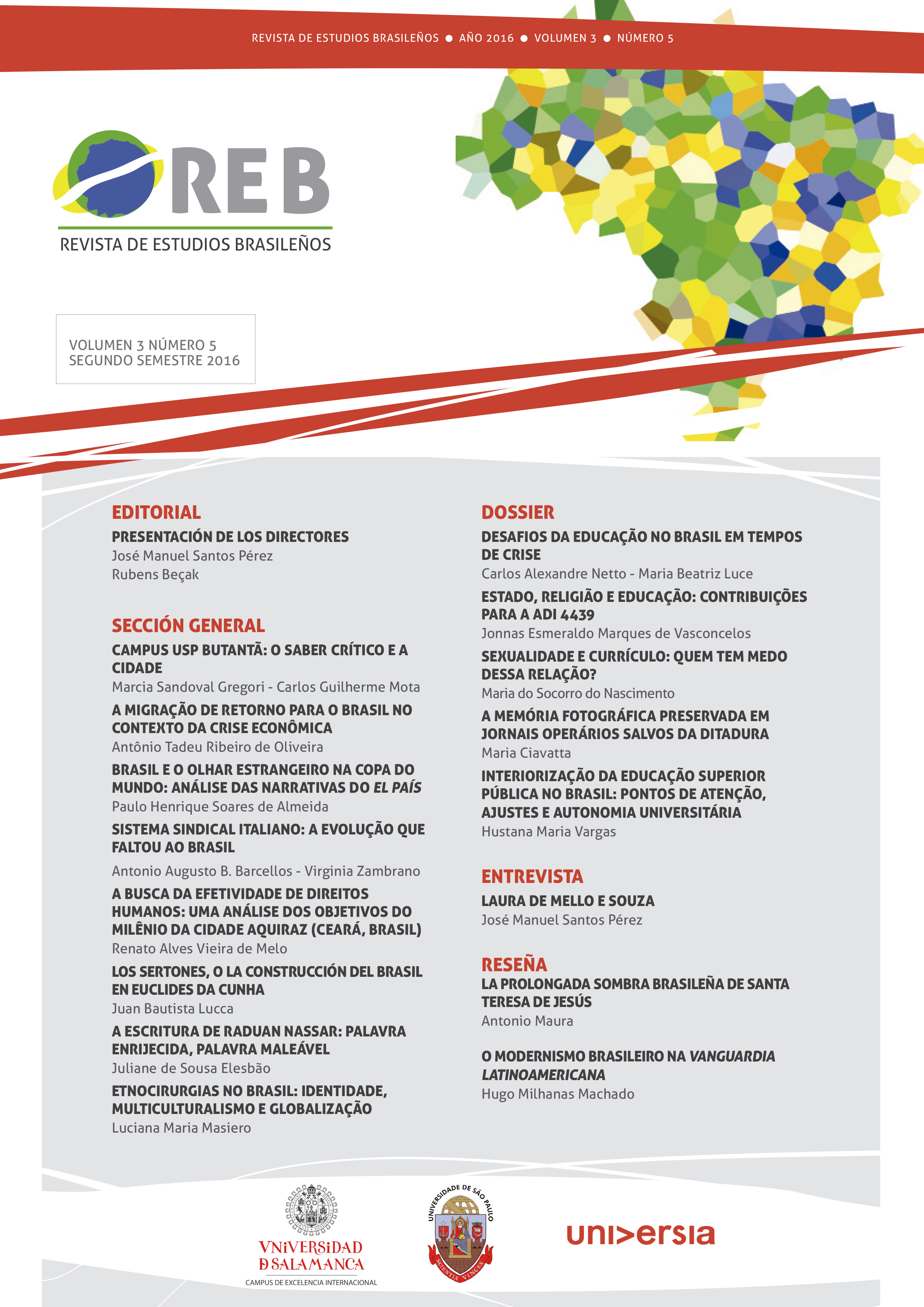Return migration to Brazil in the context of the economic crisis
DOI:
https://doi.org/10.3232/REB.2016.V3.N5.2233Keywords:
International return migration, economic crisis, labor reinsertion of migrants, BrazilAbstract
The paradox of the population spatial mobility is present in the capitalist mode of production, even in
its primitive stage. The crisis in the Fordist capital accumulation, in the late 1960 and in the early 1970,
and their passage to a flexible standard, prompted a series of changes not only in economy but also in
the way of people’s life. This new model, whose policy was neoliberalism face, was trying to preach the
minimal State, it imposed barriers against the free movement of persons to the countries of the hegemonic Center. Thrity years later, the economic crisis started in central countries, as an extension and reflection of problems that were not overcome in the previous crisis, eventually they generate a return wave and reemigrations, Brazil figures among the recipient countries of important volumes of return migration flows. In this sense, this article will seek to address the relationships between the factors that caused both the output as the return of Brazilians, as well as, through empirical data, identify as occurred the reintegration of migrants in Brazil, from the geographical location and the reintegration into the labor market.


